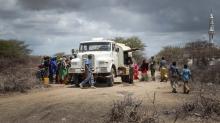PSI is pleased to launch a new, updated map of climate security practices around the world. Over the past two decades, climate security research has significantly advanced in understanding and addressing the security risks posed by climate change. Although practical action remains partially limited, there is considerable potential for growth. Consequently, there is increasing interest from the development, diplomacy, and defence sectors to become more involved in this area.












